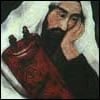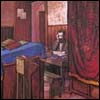Question:
At my Rabbi's urging, I started to really read through Torah. I know through the years I have heard it all in bits and pieces, but reading it through has really thrown me for a loop. Why would G‑d ask any human being to go out and kill? Why would G‑d put the everlasting guilt of wiping out entire communities upon any group of people, especially those he favors. If there were populations that were so evil, why wouldn't He take care of it Himself?
Response:
Shalom G___,
Your question is really many questions in one, but it would be confusing for me to answer all of them. Let me pick the key points instead, and the rest you will answer step by step as you grow in your knowledge of Torah.
First off, if you are studying Torah "from the beginning", you must have started with "In the beginning…" I'll bet you were moved by the majesty of this account of creation, by which all that surrounds us, from the basic energy form of light, to the stars and planets, the sky, the ocean, the dry land and all that thrives and swarms upon it, all is nothing more than the word of G‑d, as He speaks to each and every one of us, generating our reality out of the absolute void.
You also read there that the human being was made "in the divine image", so that the life of each and every human being cannot be quantified in value, just as G‑d Himself cannot be valued.
Then you read the story of Abraham, one lone man upon the earth who called upon the name of G‑d, to let all know that this Creator of heaven and earth truly cares about all that is happening with His creatures below and judges them justly and with compassion—to the point that Abraham even argued with G‑d to make his point in the case of Sodom and Gemora.
You read the story of the Exodus, a unique story, the likes of it unheard of in all the annals of any other people, whereby liberty, freedom and human dignity became realities in the world as the facade of natural law was ripped away and the truth of all nature revealed.
And then the story of the only prophet in history to arrange a meeting between G‑d and an entire nation, so that they could experience his revelation directly and be given their mission and destiny straight from the source.
All of which adds up to the most radical, earth-shaking message humanity was ever given: That life has purpose, G‑dly purpose, and each one of us stands at the vortex of that purpose.
So it's understandable that when you see these same people commanded to go to war and destroy life—namely the lives of the Canaanites—that something doesn't click. It's not simply un-PC, it seems internally inconsistent with the values being presented.
But the question only truly becomes difficult when we present the Torah as something more than an historical chronicle; as a timeless teaching, relevant at all times for all people in all circumstances. That's what the word Torah means—not "Law" as it is often mistranslated, but "the teaching", an instruction in life. If this were history, so that's how men lived once upon a time. But if it is a teaching, what could the Torah be telling me today about my life by commanding me to exterminate the Canaanites, the Hittites, the Jebusites, the Emorites and the Girgashites? What time of year do they come and where can I find the spray at Home Depot?
Really, however, knowing that Torah is a timeless yet practical instruction in life is the solution to our problem. Life, you see, implies change. Not just small changes, but often dramatic ones, like a seed becoming an oak tree or a fetus developing to an adult. So too, the life of human beings has been in flux and change for over 33 centuries since the Torah was given.
Jewish life has moved from the desert to the country to the cities to exile and to survival in every corner of the globe. That's a lot of change. How can a timeless Torah apply to all the myriad modalities of life on Planet Earth throughout time?
Torah, Squirrels and Adaptation
Over breakfast, I enjoy looking out the glass sliding doors and watching the squirrels that scurry and play in our backyard, scavenging for food during all seasons of the year.
Squirrels are amazingly adaptive animals, one of the very few mammals that have managed to survive with humankind, yet never surrendering to domestication. If there are nuts, they eat nuts. But if not, they will eat our leftover moldy challah, our cookie-crumbs, our avocado pits, the bulbs from our flower beds, the bird food from the feeder no matter how we hang it—whatever carbs and protein they can get hold of. If there is no food—not even in their hidden stores in our attic, basement, air conditioner or under the hood of the car(!)—they will hibernate. But as long as the organic recycling containers remain somehow vulnerable, they will stay awake even through the most bitter winter—and they always seem to be having fun doing it.
You may think this is nuts, but yes, I'm comparing Torah to our fuzzy un-pets out there. But much more so.
Like the DNA of squirrels, Torah contains all the code necessary to guide any life through any of its seasons. If you don't believe me, look at the laboratory test: The Jewish People, living through nomadic, agrarian, civilized, technological life among idolaters, fire-worshippers, philosophers, shamanists, monotheists, atheists in tropical, mediterranean, temperate, arctic, maritime climates where they were persecuted, celebrated, enslaved, free, poor and affluent while eating chummus, sambusas, curried rice, empanadas, gefilte fish and pizza —yet always looking to the same Torah for the wisdom to guide them through whatever life could throw at us, so that today we have won the distinction of being the only tribal community to have endured into modernity.
One Torah throughout it all. How do we do it? Because we know the code to unlock its secrets and hear what that Torah has to tell us at all times. For us, it is not an ancient script, but a living Torah. When we read from it, we thank G‑d not for having given us the Torah, but because He gives us the Torah, in present tense, continually, as we learn it, ever-discovering new secrets and depths previously unplumbed.
For example, this issue we have of destroying the Canaanites: In that era of city-states continually locked at war with one another, a pacifist stance—even a non-aggressive one—would be tribal suicide. Land belonged to those that conquered it and stood closely at guard to protect their conquest. The world had not yet evolved to a state where nations could appreciate peace as a value; indeed it did not for another three millennium with the advent of the League of Nations—and even then we know how sincere that turned out to be. So Torah had to teach a people how to value life and human dignity while living in a savage world.
And then, at a later date, those laws no longer had practical application. Even before Hellenism inundated and homogenized all the cultures and tribes of the Mediterranean, Sancherib the Assyrian conqueror had forcefully broken those tribes apart, moving peoples from their places into foreign lands where they were quickly assimilated and disappeared. When they returned from the Babylonian exile, the Children of Israel were no longer commanded to destroy the populous of the land—since the original nations no longer existed. Persia had moved the world from a collection of city-states bullying one another to a competition of true empires, and so that application was no longer relevant.
But what then became of the instruction of an eternal Torah that gave that command?
Ingeniously: it became internalized. The seven nations of Canaan became seven elements of human character, such as lust, anger and haughtiness that must be eradicated from within each one of us if our bodies are to become a holy land in which a temple may be built and G‑d may dwell. The nation of Amalek became the cold, intransigent sense of "I am" that lies at the core of all evil. Instead of war upon nations around us, we are enjoined to make war at the evil within—by the same Torah, with the same words.
Now you will understand why Jewish people never study the text of the Torah without the glosses and commentaries our people have accumulated through the ages. The Talmud, the midrashim, the classic commentaries of medieval scholars, Renaissance Kabbalists, Chassidic masters and modern-day analysts provide much more than icing to a cake. They are the spices and herbs that bring out the essential flavor, demonstrating to us just how much wealth of wisdom this Torah contains, so that we can apply every story, every chapter and every word into vital practice in our daily life.
So just as your rabbi urged you to read through the Torah, I urge you to dig deep into some of those commentaries. It is all Torah: we heard the voice at Mount Sinai and Moses transcribed those words for over forty years in the wilderness; but the soul within those words, that has taken us 3300 years of journeys and adventures to unfold. And now it lies before you, all yours for the taking.
Please also read Why Is There So Much War and Violence in the Torah? and Torah and Genocide FAQ.





Join the Discussion